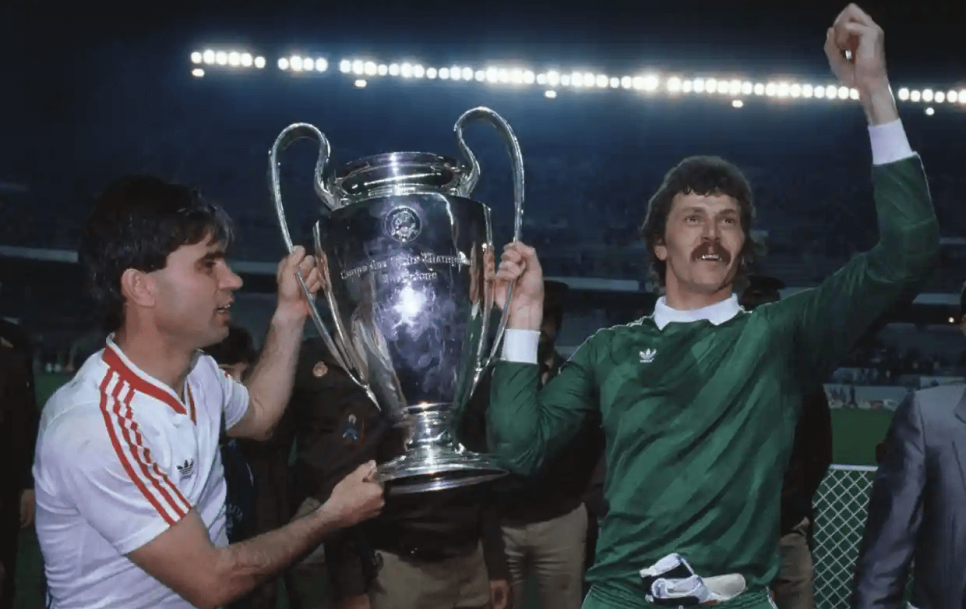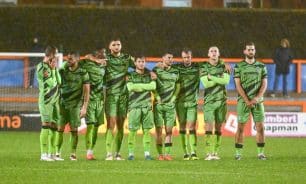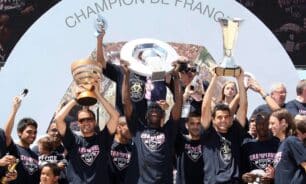If others did it, Inter can too!
On June 10th in Istanbul, Manchester City and Inter Milan will meet in the ultimate showdown, the Champions League final. One, of course, has won it before, while the other comes in as the heavy favourite.
There is a meme doing the rounds on social media. According to it, City has Erling Haaland, Kevin De Bruyne, and other expensive players; they will likely have more ball possession and excel at positional play as well as counter-attacking. Their head coach Pep Guardiola set another tactical evolution in motion this season while Abu Dhabi is providing unlimited funds.
Inter meanwhile has a TikToker predicting their win by cracking eggs – he has been correct so far, to be fair – as well as the infamous Yaya Toure curse on Guardiola. Inter also has a balding middle-aged man (for Goran Pandev in 2010, see Henrikh Mkhitaryan in 2023) and a Croatia (Brozovic; at least one has triumphed for 10 straight years), while Simone Inzaghi has allegedly never lost to a bald manager.
So things seem to be finely balanced before Istanbul, right? Truthfully, there has not been such a lopsided final for quite some time. The clichés can work for Inter – “the game starts at 0:0”, “the Italians know how to defend” et cetera – but they will have to put on their big boy pants to perform a miracle. Luckily for them, it would not be the first time in Champions League history.
Who has done it before?
Today, we will not be talking about the last time everyone set their eyes on Istanbul in 2005. To this day, it is incomprehensible how Liverpool turned that 0:3 deficit around to finish 3:3 against AC Milan and later win on penalties. Milan was the favourite, led from the first minute, and had it all under control. But then, a team with Steve Finnan, Sami Hyypiä, and Djimi Traore somehow overcame the odds.
Neither will this piece be about 1997, the time Borussia Dortmund upset reigning champion Juventus boasting the likes of Didier Deschamps, Zinedine Zidane, Alessandro Del Piero, and Christian Vieri. Dortmund won 3:1, with substitute Lars Ricken scoring with his first touch. Look that one up, a truly great moment.
Nor 2022. Remember the final last year? Real Madrid won and there is nothing out of the ordinary about that. But on that night in Paris, Liverpool outshot them 23 to 3, with Real managing just one shot on goal. Enough to triumph 1:0.
Instead, welcome to 1986. Picture it. May 7th in Seville, Spain. There is no European Union. No Channel Tunnel. There is a wall in Berlin and a Soviet Union, however. Just a few weeks earlier, Chornobyl happened. Just a few months later, Diego Maradona and Argentina will be crowned World Cup winners. Different times indeed.
How the 1986 final came to be
First, let’s list some names. A spine of Urruti, Migueli, Bernd Schuster, Marcos Alonso, and Steve Archibald, managed by Terry Venables. They all were with Barcelona; Migueli ranks seventh in all-time appearances just after Carles Puyol, while Schuster was the star, a European champion who came close to winning the Ballon d’Or thrice.
English teams had won seven of the previous nine editions but were banned in 1986 due to the tragedy at Heysel in 1985; still, heavyweights like Bayern Munich and Juventus were tipped to lift the trophy. But both exited in the quarter-finals, with Anderlecht dismantling Bayern and Barcelona, leaving Juve trailing.
Now another set of names: Helmuth Duckadam, Miodrag Belodedici, Tudorel Stoica, Victor Piturca, and their coach Emerich Jenei. Except for Piturca, who later had three different stints leading Romania and took them to two European championships, the names are more or less unknown today. In 1986, they formed the core at Steaua Bucharest.
Steaua was particularly strong at home and made the most of it throughout the season. They reached the final by dispatching Danish side Vejle (1:1 away; 4:1 home), Hungarian giant Budapest Honved (0:1; 4:1), Finnish surprise package FC Kuusysi (1:0; 0:0), and then Anderlecht (0:1; 3:0). Barcelona had lost their semi-final first leg 0:3 to Göteborg, but turned the scoreline around at home and won on penalties.
So on to the final in Seville, where the Ramon Sanchez Pizjuan was packed with a full house of 60 000 people – 59 000 of them Barcelona fans, as commentator Brian Moore quite correctly pointed out. With Romania still under Communist rule, only a select few could cross the border to attend the final. Almost everyone inside the stadium was expecting Barcelona to triumph.
120 minutes to forget, history to remember
“Wouldn’t it be a pity not to take the trophy having reached the final, knowing the chance might never come again?” asked Steaua coach Emerich Jenei. Captain Stoica was suspended for the final, but Steaua defended magnificently and Barcelona had a goal ruled out due to offside. For the first time in history, the European Cup final finished goalless so it came down to penalties to separate the two teams on the night.
Up stepped Steaua goalkeeper Helmuth Duckadam. An avid poker player, he opted against studying the patterns of Barcelona penalty takers and wanted to get in their heads instead. Steaua went first and missed. Duckadam saved. Steaua missed again. And Duckadam saved again.
While Steaua went on to score their third and fourth penalty, Duckadam made sure to pull out two more stops. Diving right the first three times and then left, he saved all four attempts from the baffled Barcelona players. To this day, he is the only goalkeeper to save four penalties in the history of Champions League finals.
That day, they were on top of the world. Steaua won the European Super Cup in 1987 and reached the European Cup final again three years later, but was overpowered 0:4 by AC Milan; The Romanian Revolution in December 1989 helped them achieve independence as a nation, but for Steaua and Romanian football, it signalled an end of an era. Their best players left for greener pastures as soon as the borders opened.
As for Duckadam, the hero of Seville, it was not meant to be. Just a few weeks after his miraculous efforts, he fell freakishly and suffered a blood clot which caused his arm to go numb. He quit football only to reappear years later in a lower league side but never came close to the heydays again. In those 15 minutes of fame, though, Duckadam and Steaua etched their names in history forever.










